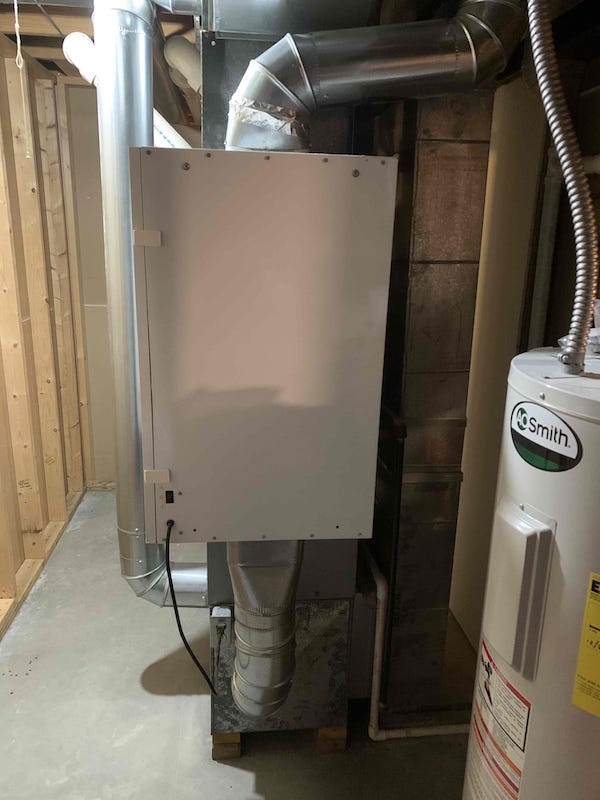Could a Heat Pump be Right for Your Home?

The Inflation Reduction Act, passed in mid-August, includes $9 billion to help consumers electrify their homes through rebate and energy efficiency promotion provisions. Some of the most appealing provisions incentivize the purchase and installation of heat pumps.
How Heat Pumps Work
Despite their name, heat pumps don’t generate heat, and they can be used to both warm and cool buildings.
They use electricity and refrigerant to push warm air out of buildings in the summer and to pull warm air in during the winter, even in very cold conditions. Both of those functions are easier to do in well-insulated buildings.
One of the biggest advantages of heat pumps over standard heating, ventilating and air conditioning is that there’s no need to install separate systems to heat and cool your home. They can cut your energy bill as well.
Currently, heat pumps tend to cost more than gas- or oil-burning furnaces.
But they are approaching cost parity compared with fossil-fuel sources of heat in multiple markets. Rising natural gas prices, as well as continuing improvements in energy efficiency have given heat pumps an operating-cost advantage in some cases.
And with the new tax credits and rebates, heat pumps are becoming much more attractive to customers contacting their local HVAC contractor.
Heat Pumps are More Efficient
Heat pumps are 2.2 to 4.5 times more efficient than gas furnaces, according to an article citing the McKinsey Report on E&E News. Because heat pumps don’t burn fossil fuels, the consulting firm estimates that worldwide use of “heat pumps instead of traditional boilers and furnaces could cut global CO2 emissions by 3 gigatons per year.”
The U.S., however, is a tough market. That’s partially because natural gas is much more abundant and cheaper in the U.S. than in other countries.
Meanwhile, local policies on natural gas appliances vary widely. Some progressive cities have banned natural gas hookups in new buildings, while some conservative-controlled states have passed legislation banning gas bans.
But perhaps the biggest barrier to increasing U.S. demand for heat pumps is a general lack of familiarity with the product.
The Inflation Reduction Act my help: it provides $200 million to train and educate contractors involved in the installation of home energy efficiency and electrification improvements.
Hot in Europe
Europeans are rushing to install heat pumps.
That’s partially to address the heat waves that have been baking the continent, where air conditioners are relatively rare. It’s also in response to fears of a looming energy crisis, with Russia threatening to cut off the European Union’s main gas supply in the depths of winter.
In France, for example, energy-efficiency subsidies make heat pumps a cheaper option for households than natural gas or oil.
Heat Pump Use in America
There are currently more than 17.5 million central heat pumps installed in the U.S., mostly in Southern states. Until recent years, heat pumps did not work as well in cold climates, but with new technologies, that is no longer the case.
The Inflation Reduction Act’s incentives for heat pumps and other efficiency retrofits could cut the cost of becoming more energy efficient by 5 to 40% per home.
For millions of buildings, the argument for such technologies can be made on economic grounds for the first time.
The advantages of technologies such as heat pumps include:
- Lower energy bills
- Reduced health and climate impacts from burning fossil fuels
- Higher property values
- Appliances that can interact with a renewable-energy-powered grid
To find out if a heat pump would make sense for your home, call your trusted HVAC partner. In Greater Cincinnati, Jansen Heating and Cooling is always available to help.
